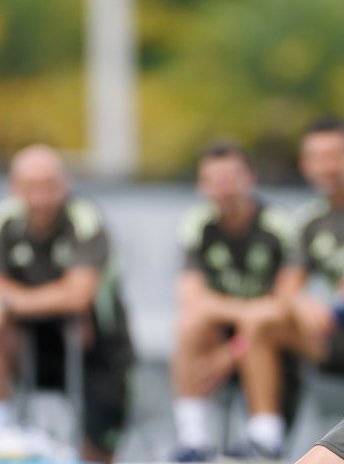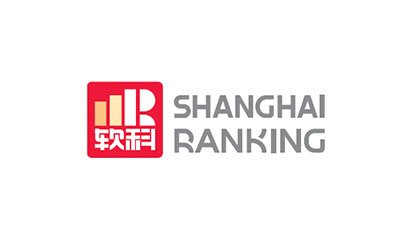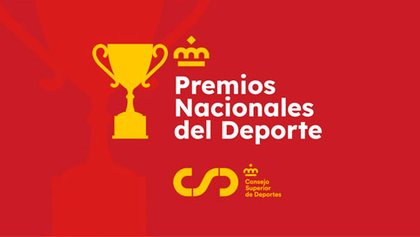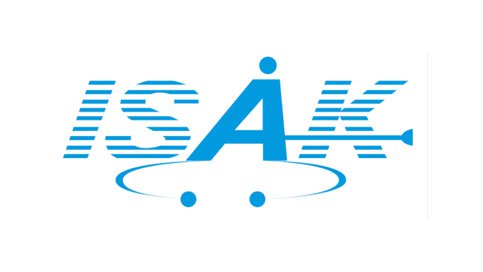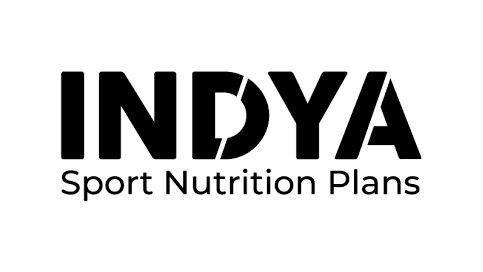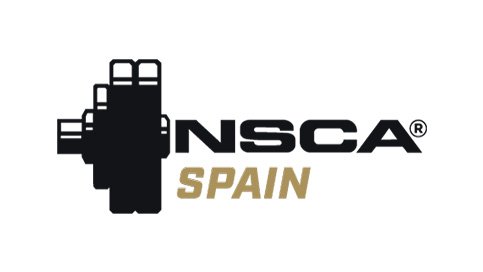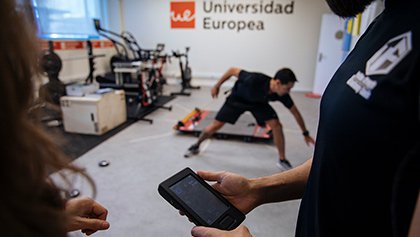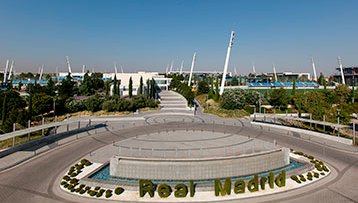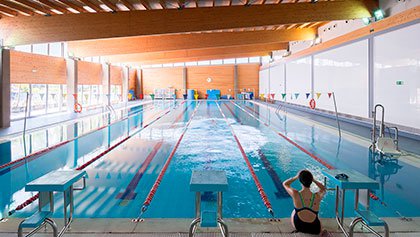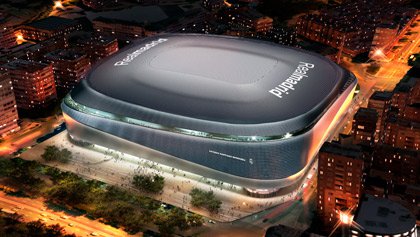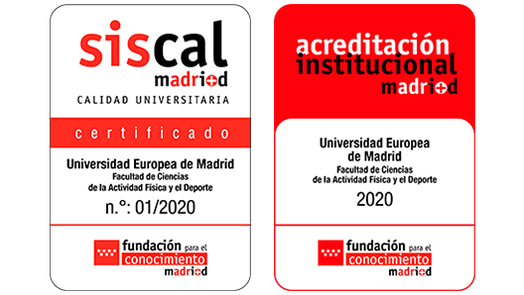Master in Sports Training and Nutrition
The Master’s Degree in Sports Training and Nutrition at Escuela Universitaria Real Madrid Universidad Europea is a 9-month intensive program designed to prepare you to improve athletic performance through a scientific, practical, and multidisciplinary approach. With a comprehensive focus, you’ll learn to design personalized training programs, advanced nutrition plans, and recovery strategies applied to elite-level sport.
What will you learn during the program?
- Design individualised nutrition and hydration strategies according to training schedules and/or competition plans.
- Implement recovery strategies to optimize sports performance, prevent injuries, and avoid overtraining.
- Apply the principles of exercise physiology and load management to optimise athletes’ physical preparation.
- Analyse in depth the sports supplements available on the market and incorporate them into nutritional planning based on scientific evidence.
Live the Real Madrid experience: you’ll complete your internship in top-level sports organisations, many of them internationally renowned, such as Real Madrid C.F., recognised for its innovation in training and applied nutrition. In addition, during the program, you’ll have the opportunity to participate in an international trip — the Rome trip, specifically, is focused on the area of health.
Official degree issued by Universidad Europea de Madrid
| Villaviciosa de Odón | Start: October 2026 | Faculty of Medicine, Health and Sport | Escuela Universitaria Real Madrid Universidad Europea |
The quality you deserve
Explore Escuela Universitaria Real Madrid
High quality facilities
In order for you to get the most out of our innovative academic model, Universidad Europea offers a range of labs equipped with the most advanced and innovative technologies.
Study plan
Syllabus
Offered in the current academic course.
Programa de estudios
PRIMER CURSO
| Materia | ECTS | Tipo | Idioma de impartición |
|---|---|---|---|
| Training I | 6 | OBLIGATORIA | English |
| Training II | 6 | OBLIGATORIA | English |
| Training III | 6 | OBLIGATORIA | English |
| Sports nutrition I | 6 | OBLIGATORIA | English |
| Sports nutrition II | 6 | OBLIGATORIA | English |
| Sports nutrition III | 6 | OBLIGATORIA | English |
| Practicum | 12 | OBLIGATORIA | English |
| Master's Thesis | 12 | OBLIGATORIA | English |
What you’ll learn
1
First semester - Master the scientific foundations that drive elite performance
- You will learn to design short-, medium-, and long-term training programs using cutting-edge methods to improve strength, endurance, recovery, and overall health.
- Create rigorous nutritional plans, including supplementation, nutrient timing, hydration, and strategies adapted to special conditions such as climate or extreme temperatures.
- Conduct performance and body composition assessments, analyzing movement, biochemistry, and muscle/fat composition using advanced monitoring devices.
- Explore the latest trends in sports nutrition, including chrononutrition, microbiota, inflammation management, recovery, natural supplementation, and emerging technologies.
2
Second semester - Apply your knowledge in real-world, international settings
- Complete guaranteed professional internships in clubs, high-performance centers, federations, sports organizations, and medical institutions.
- Work with cutting-edge technology in facilities like the Human Research Lab, Real Madrid training centers, biomechanical monitoring systems, and advanced evaluation tools.
- Develop a Master’s Final Project focused on research or professional practice, tackling real challenges in sports training and nutrition.
Colaborating entities
Ongoing collaboration throughout the master’s program with various national and international football clubs and partner companies:
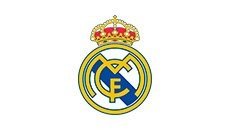
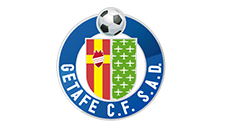
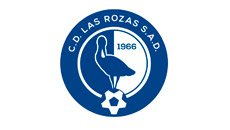
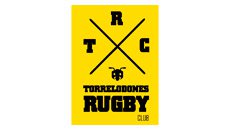
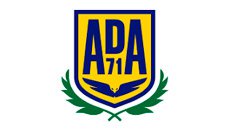
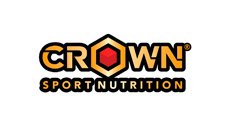
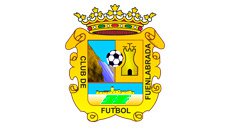
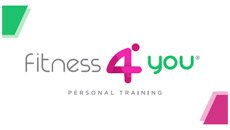
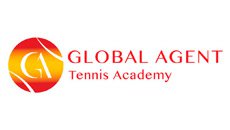
More information
Methodology
The objective of this master in sports nutrition online is to prepare you to:
- Schedule training plans in the short, medium and long term in different contexts.
- Manage devices for analysis of human movement and training control.
- Plan diets and natural supplementation.
- Conduct performance and body composition assessments.
- Carry out research and conduct scientific enquiries.
- You shall acquire specialised knowledge about the most avant-garde training methods, the latest trends in sports nutrition and natural ergogenic aids to improve sports performance. In addition, you’ll be able to train as a researcher by accessing the PhD in Physical Activity and Sports, certified by ANECA, at Universidad Europea de Madrid.
- You shall experience a practical work methodology that combines teamwork, attendance at seminars and individual work on campus facilities equipped with the most advanced technology.
- You shall complete a master’s thesis on an area related to research or the professional field of your choosing.
Methodologies are extremely diverse and depend on the module and professor. Some of the methodologies you shall come across include:
- The case method
- Cooperative learning
- Problem based learning (PBL)
- Project based learning
- Masterclasses
- Simulation environments
- Learning based on workshops/laboratory lessons
Programme implementation
Year of implementation of the degree: 2009 - 2010
Places for incoming students
100 places
Graduate profile
The graduate profile corresponds to a professional trained in the sciences of physical activity and sports, with a continuous interest in deepening and advancing their knowledge in the following areas:
- Physiology of sports training.
- Biomechanics applied to sports training.
- Planning and periodization of sports training.
- Sports injuries: prevention and recovery.
- Nutrition and natural ergogenic aids applied to athletes.
- Psychology and sociology of physical activity, sports, and sports competition.
- Antropometrist Level I or II.
Internships
Internships in companies are a key element of your education
Gaining practical experience after completing your degree is the best way to enter the job market. There are two types of internships: curricular (included in your academic program) and extracurricular (those you can undertake voluntarily).
This program, thanks to its reputation in the industry, has over 30 agreements with top-tier companies and sports organizations where you can carry out your professional internships, in addition to positions available within the sports structure of Real Madrid C.F., reserved for the most outstanding academic records. Moreover, the professional nature of the School and its constant interaction with the sports industry will allow students to connect with leading professionals and companies in the sector, opening up new professional opportunities.
Key competencies
Basic competencies
- CB1. Possess and comprehend knowledge that provides a foundation or opportunity to be original in the development and/or application of ideas, often within a research context.
- CB2. Demonstrate the ability to apply acquired knowledge and problem-solving skills in new or unfamiliar environments within broader (or multidisciplinary) contexts related to their area of study.
- CB3. Be capable of integrating knowledge and addressing the complexity of formulating judgments based on incomplete or limited information, including reflections on the social and ethical responsibilities linked to the application of their knowledge and judgments.
- CB4. Communicate conclusions—and the underlying knowledge and rationale supporting them—clearly and unambiguously to specialized and non-specialized audiences.
- CB5. Possess learning skills that enable continued study in a manner that is largely self-directed or autonomous.
Transversal competencies
- CT1. Creativity. Create new ideas and concepts based on known ideas and concepts, arriving at conclusions or solving problems, challenges, and situations in an original manner.
- CT2. Strategic Communication. Convey messages (ideas, concepts, emotions, arguments), both orally and in writing, aligning the interests of different stakeholders strategically.
- CT3. Digital Competence. Use information and communication technologies for data search and analysis, research, communication, and learning.
- CT4. Influential Leadership. Influence others to guide and direct them towards specific goals and objectives, considering their viewpoints, particularly in situations arising from today’s volatile, uncertain, complex, and ambiguous (VUCA) environments.
- CT5. Teamwork. Cooperate with others to achieve a shared objective, actively participating, showing empathy, practicing active listening, and respecting all team members.
- CT6. Critical Analysis. Integrate analysis with critical thinking in the process of evaluating different ideas or possibilities and their potential errors, based on evidence and objective data that lead to effective and valid decision-making.
- CT7. Resilience. Adapt to adverse, unexpected, and stressful situations, whether personal or professional, overcoming them and even turning them into opportunities for positive change.
- CT8. Ethical-Social Competence. Demonstrate ethical behavior and social commitment in professional activities, as well as sensitivity to inequality and diversity.
Specific competencies
- CE1. Analyze, describe, and evaluate the adaptations of the human body to different levels of physical activity in individuals of various ages, performance levels, or special population groups.
- CE2. Analyze and apply physiological, biomechanical, psychological, and social principles to different fields of sports and nutrition, identifying inappropriate practices that pose health risks to avoid and correct them in different population types.
- CE3. Research and evaluate scientific documentation related to human performance and sports nutrition.
- CE4. Interpret research and apply new technologies in the field of training and sports nutrition.
- CE5. Manage and differentiate the methodologies and procedures specific to scientific research in the field of training and sports nutrition applied to all ages and performance levels.
- CE6. Design and develop research in the field of sports and nutrition, contributing new knowledge to a specific area of scientific and social interest while respecting ethical limits and values.
- CE7. Lead research and development projects cooperatively and interdisciplinarily within the broader scientific community.
- CE8. Plan, program, apply, monitor, and evaluate training and competition processes at various performance levels, ages, and population groups.
- CE9. Design training programs and nutritional advice applicable to different sports specialties and performance levels, diagnosing physical fitness, motor skills, and nutritional status.
- CE10. Select and use appropriate spaces, materials, and sports equipment for each type of activity.
- CE11. Acquire knowledge independently (autonomous learning).
- CE12. Communicate research and project conclusions to specialized audiences.
- CE13. Practically and integrally apply the knowledge, skills, and competencies acquired in professional settings related to training and sports nutrition.
- CE14. Develop, present, and defend a research project in the field of training and sports nutrition, publicly and individually, before an academic tribunal as a synthesis of the competencies acquired in the degree program.
Faculty
The faculty on this master's course has 90% of doctors.
Our teaching staff
Program Directors
- Guillermo Muñoz Andradas
Graduate in Physical Activity and Sport Sciences. Lecturer and researcher at Universidad Europea de Madrid. - Krizia Radesca Fabiano
Degree in Nutrition and Dietetics with MU in Sports Training and Nutrition. Academic Coordinator of the EURM. Postgraduate lecturer and researcher at Universidad Europea de Madrid. Anthropometrist ISAK. - Martín Alejandro Festino
Graduate in Nutrition. ISAK Level III Anthropometrist. - Rebeca Benítez Valero
Graduate in Physical Activity and Sport Sciences and Primary Education. Researcher at Universidad Europea de Madrid. - Joaquín González Ródenas
PhD in Physical Activity and Sports Sciences from the University of Valencia, with a doctoral thesis focused on tactical analysis in football (2013). Throughout his career, he has combined university teaching and research with extensive professional experience in youth football across various countries. - Carolina Perea
Sports Nutritionist at Real Madrid C. F.
Sports Training and Nutrition Professors
- Asker Jeukendrup
A world reference in the study of Sports Physiology and Carbohydrates. Gatorade Institute, MySportScience, Loughborough University. He holds a Master's degree in Human Movement Sciences from Maastricht University in the Netherlands. He completed his PhD in 1997 at the same university, studying aspects of carbohydrate and fat metabolism during exercise. He was a professor of exercise metabolism at the University of Birmingham for 12 years and worked in Human Performance at the same institution. Currently, he is a professor at Loughborough University and the director of the performance nutrition team for NL, the Jumbo Visma team, and Red Bull APC. - Dra. Noelia Bonfanti
Degree in Nutrition from the University of Buenos Aires. PhD in Physical Activity and Sports Sciences from the INEF in Madrid. Master in Nutrition and Metabolism from the University of Córdoba (Spain) and Anthropometrist ISAK level 3. Noelia, is currently the Nutritionist of the Dutch Olympic rowing team and Nutrition Consultant at the Red Bull Athletic Performance Center. In addition, it serves professional and amateur athletes, as well as the general population in its own Dr. Noelia Bonfanti Nutrition Center, in Spain and in other countries. - Mireia Porta Oliva
Nutritionist for the Spanish National Field Hockey Team and FC Barcelona. Associate Professor of "Applied Nutrition" at the Autonomous University of Barcelona and clinical nutritionist at Serveis Mèdics Penedès. - Daniel Escaño
Degree in Human Nutrition and Dietetics from the Autonomous University of Madrid. Specialist in High-Performance Sports. Sports nutritionist and manager of the Sports Nutrition and High Performance Center that bears his name in Alcobendas-Madrid. - Pablo Molina
Degree in Physical Activity and Sports Sciences. Master's in Research in Physical Activity and Sport from the University of Granada. Master's in Injury Prevention, Recovery, and Functional Readaptation from the International University of Andalusia, Seville. Master's in Secondary Education, Baccalaureate, Vocational Training, and Language Teaching, specializing in Physical Education. PhD in Biomedicine (University of Granada) and Biomedical Sciences (KU Leuven, Belgium). Postdoctoral Researcher, Virgen de las Nieves University Hospital, Granada (Spain). - Dr. Oliver Gonzalo Skok
Professor of Sports Training Theory at San Jorge University (Zaragoza). Physical trainer for ACB team CB Zaragoza and coach for Spain’s junior basketball teams. In charge of injury Readaptation/Rehabilitation at Sevilla FC. - Pablo Ortega Prados
Physiotherapist, also holding a degree in Physical Activity and Sports Sciences, a diploma in Physical Education, and a master's degree in Training and Nutrition. Currently works with elite athletes and teaches at the European University in various postgraduate programs. Collaborates with Prime Sport Center. He has been linked to the Department of Physical Education and Sports at the University of Granada. - Dr. Maria Soledad Arribalzaga
PhD in Health, Disability, Dependency and Welfare (ULE - Spain)
Master's Degree in Sports Training and Nutrition (UE-Real Madrid - Spain) University Specialist in Chemistry and Genetics in Health, Nutrition and Sport (UPV/EHU - Spain).Bachelor of Nutrition (ISALUD - Argentine) - Dr. Malek Mecherques Carini
Degree in Nutrition, ISAK Level 3 Anthropometrist. MSc in Sports Nutrition (UCAM Spain). Researcher at the International Chair of Cineanthropometry UCAM since 2019. Member of the ISAKMetry technical area. Speaker at national and international conferences. - Dr. Nidia Rodríguez – Sánchez
Degree in Dietetics and Clinical Nutrition, with postgraduate studies in Anthropometry and Applied Sports Nutrition. Worked as a sports dietitian for a professional football team in Mexico and as a nutrition advisor at the Gatorade Sports Science Institute in Mexico. Holds a diploma in Sports Nutrition from the IOC and is an ISAK Level 4 instructor. PhD in Hydration Physiology with postdoctoral research in the area. - Dr. Antonio Molina
Pharmacist and nutritionist from Córdoba, president of Nutrifarma Centers, the first clinical nutrition unit in pharmacies with 14 centers in Spain authorized by Health. Developed a novel histamine measurement test to design healthy diets and prevent food sensitivities. The test has shown significant benefits for athletes, improving their performance and general well-being. - Dr. Mercedes Sotos Prieto
Nutritional epidemiologist and Ramón y Cajal Scientist at the Autonomous University of Madrid, as well as an adjunct professor at Harvard School of Public Health. She worked as a postdoctoral fellow at Harvard and an assistant professor at the University of Ohio. - Dr. Oliver Witard
Dr. Oliver C. Witard is a Senior Lecturer in Nutrition and Exercise Metabolism at King’s College London. His research focuses on healthy aging, particularly the role of protein and exercise in preserving muscle mass and quality. He holds a PhD in muscle protein metabolism from the University of Birmingham and has worked extensively on optimizing nutritional strategies for aging populations. Dr. Witard is a recognized expert in his field, with accolades such as the Young Investigator of the Year award from the European College of Sports Sciences.
Admissions
Start your future at Universidad Europea
You can become a student at Universidad Europea in three easy steps.
1
Admission exams
Start your admission process by calling +34 918257527 or request information and our advisors will contact you.
2
Place reservation
Once you have been admitted, secure your place by paying the reservation fee.
3
Enrollment
Submit the required documents to formalise your enrollment.
Profile for prospective students and how to access this degree
The Master's in Sports Training and Nutrition is aimed at graduates in sport sciences, nutrition, physical education teaching, medicine, physiotherapy or nursing. This program does not qualify for the profession. Other university graduates with (accredited) experience in the subject may also enrol if they pass the selection process.
Admissions requirements
For access to the master’s programme, students are legally required, in accordance with the provisions of R.D. 861/2010:
To possess an official Spanish university degree or another degree issued by a higher education institution within the European Higher Education Area.
To possess a degree in accordance with educational systems outside the European Higher Education Area without the need for the regulatory approval of their degree, conditional upon verification by the university that this degree accredits the equivalent level of training as the corresponding official Spanish university degrees and allows students in the country issuing the degree to access postgraduate education. Access by this route shall not imply, in any case, either the regulatory approval of the previous degree of which the interested party is in possession or its recognition for purposes other than studying the master’s.
Frequently asked questions
Why is a sports nutritionist important?
Nutrition is important to athletes because it provides the source of energy needed to perform activities. The food we eat affects our strength, training, performance and recovery. Not only is the type of food important to sports nutrition, but the time we eat throughout the day can also affect our performance levels and the body's ability to recover from exercise.
Pre- and post-workout meals are important in sports nutrition, but you should be very careful about what you eat. In general, athletes should eat about two hours before training, and this meal should be high in carbohydrates, low in fat, and low in protein. Carbohydrates are the main source of energy to fuel your exercise program, and protein is needed to support muscle growth and repair. After a workout, you need to replace lost carbohydrates, and you need to ensure adequate muscle recovery by including protein in your post-workout meals.
What does a sports nutritionist do in a day?
A day in the life of a sports nutritionist is varied and involves different tasks. These include:
- Providing nutritional education and services to athletes
- Consulting with athletes to help them develop optimal eating habits.
- Design menus,
- Recommend vitamins and supplements,
- Provide nutritional advice for athletes.
What skills does a sports nutritionist need?
Effective sports nutritionists often possess a range of skills to succeed in their profession. These include:
- Networking.
- Active listening.
- Critical thinking.
- Teaching.
- Biological knowledge.
- Nutritional knowledge.
- Organisation.
- Communication.
All of these are skills that will be worked on during the Master in Sports Training and Nutrition, via classroom theory, but more importantly, practical based learning and spending time within companies and organisations in the sector.
Where can I study sports nutrition?
Escuela Universitaria Real Madrid has an official Master's degree in training and sports nutrition. The status of its faculty and guest speakers, as well as the facilities of the Villaviciosa de Odón Campus, makes it the perfect place for this specific training.
Not only that, but the global and multicultural vision of our University will allow you to work with classmates from all over the world, providing a much broader vision, and increasing your network of contacts.
Finally, we must highlight the professional opportunity that this Master represents thanks to the learning experience in which practice takes precedence and work with real projects and companies and additionally by the numerous sports entities in which you have the opportunity to carry out professional internships.
